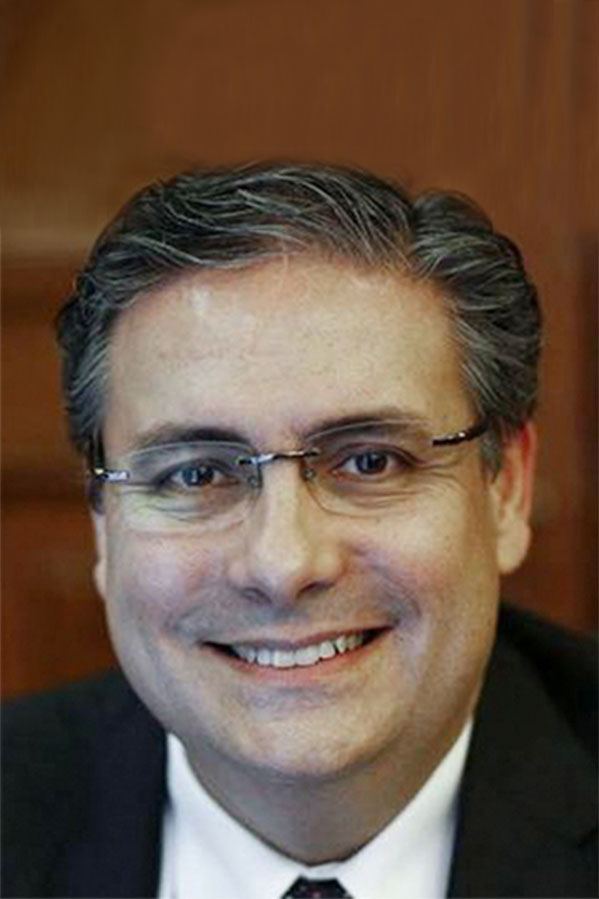Membro-Chave da Equipa, Universidade do Minho
Carlos Abreu Amorim
A sua expertise como ex-parlamentar português e o seu background académico sobre direito administrativo e ambiental acrescentará valor à equipa na densificação do entendimento de sustentabilidade tecnológica diante dos atuais desafios democráticos.
- Nacionalidade Portuguesa
- camorim@direito.uminho.pt

Resumo de competências e experiência relevantes
Doutoramento em Direito (UMinho, 2009). Professor (Escola de Direito - UMinho, lecionando Direito Ambiental e Direito Administrativo aos 1.º e 2.º ciclos de estudo, e, na Universidade Lusófona do Porto, lecionando Direito Constitucional e Direito Administrativo ao 1.º ciclo de estudos). Diretor (Departamento de Ciências Jurídicas Públicas, Escola de Direito, UMinho. Membro da Comissão Diretiva (Mestrado em Direito Administrativo, UMinho) e Fundador (Mestrado em Direito do Governo Local, UMinho). Membro da Comissão Coordenadora do Conselho Científico do JusGov (https://www.jusgov.uminho.pt/center/governing-structure/). Deputado (Assembleia da República, 2011-2019) tendo integrado as seguintes Comissões Parlamentares: i) Assuntos Constitucionais, Direitos, Liberdades e Garantias; ii) Ambiente, Ordenamento do Território e Poder Local; iii) Reforço da Transparência no Exercício de Funções Públicas; iv) Acompanhamento das Medidas do Programa de Assistência Financeira a Portugal; v) Comissão para a Revisão Constitucional. Vice-Presidente de uma bancada parlamentar na Assembleia da República (2011-2018), dirigindo "Políticas ambientais, justiça e assuntos internos", e tendo sido responsável por várias reformas legislativas: Reforma Administrativa do Poder Local (2013); Lei do Ambiente (2014); Reforma do Poder Judicial (2014); Lei Nacional de Execução do Regulamento Geral de Proteção de Dados (2018). Membro efetivo (Comissão Portuguesa de Acesso aos Documentos Administrativos, 2017-2021) nomeado pela Assembleia da República.
Publicações relevantes para a implementação do CitDig
i) “The practicality of administrative responses in need in the context of the COVID-19 pandemic”, in UMinho in times of pandemic, Tomo III – Forecasting, 2020 (where author explores the advent of new challenges for public administration – as the need to fulfil the purposes of public interest in ways and forms different from the usual –, especially due to the sense of urgency that confinement has brought, hastened the application of digital means in the execution of administrative tasks and contributed to the digitization of public administration); ii) “Identifiable relatives in the family history: not without individual consent”, with José Nunes and Maria Faria, Porto Biomed, 2020 (where authors explain the GDPR and its Portuguese implementing law have mandatory rules on how personal data should be processed in research tasks in the field of medicine – but the data available in Portugal on scientific research, particularly in the field of medicine, show that these objectives have not yet been achieved); iii) “European Climate Law – real changes or postponed future?”, with Ana Cardoso, UNIO – EU Law Journal, Vol. 7, No. 1, July 2021 (where authors explain to what extent the Recovery Plan for Europe and the European Green Deal are united in their purposes and in their concrete action, and why is necessary to strengthen the European Climate Law as a key tool in the implementation of the EU environmental policy strategy).
Experiência de ensino relevante para o CitDig
i) Environmental Law, lectured in Master of Administrative Law/Master of Human Rights/Master of EU Law, UMinho (summary: The emergence of the right of the environment in our contemporaneity; The environment is changing the law; Constitutional law of the environment; International and EU environmental law; EU Green Deal and EU Climate Law; Environment Law and Digital Europe Programme as Siamese twins in transforming the challenges of the future); ii) Constitutional Law, lectured to the 1st cycle of study in Law, University Lusófona of Porto (summary: Constitution and State; History of EU and Portuguese constitutionalism; Fundamental rights; The relevant constitutional principles in 21; Os órgãos de soberania; A revisão da constitucionalidade; “Checks and balances” na Constituição portuguesa; O constitucionalismo da UE em construção).
 CitDig
CitDig